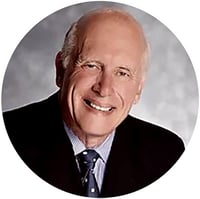
Our third Advisor Wellness Survey found Covid-19’s impact on the advisory industry was modest. Check out the survey’s insights on how advisors can balance professional success and personal well-being.

ADVISOR WELLNESS NOW:
A PODCAST SERIES
Listen as experts in a variety of roles talk about how advisors can better manage stress.

Amy Dittman
What Makes a Healthy Workplace?
Amy Dittman, is a Health Promotion Specialist working with Stifel.

Dr. Chloe Carmichael, PhD
I’m Not a Therapist! When Clients Bring Up Emotional Issues
Dr. Chloe is a clinical psychologist, author of “Nervous Energy: Harness the Power of Your Anxiety."

Lauren Oschman CFP®
Conquering Stress Through
Flexible Work Arrangements
Lauren Oschman CFP® is Partner and Chief Experience Officer at Vestia Personal Wealth Advisors and is passionate about the benefits of a hybrid work environment.

Patty Kreamer CPO®
Conquering Stress with Productivity
Patty Kreamer is a productivity coach, speaker, Certified Professional Organizer® and author of four books

Dr. Chloe Carmichael,
PhD
Conquering Stress: Harnessing
the Power of Your Anxiety
Dr. Chloe is a clinical psychologist,
author of “Nervous Energy:
Harness the Power of
Your Anxiety.”

Dr. Jack Singer, PhD
Conquering Stress and
Coming Back Stronger
Dr. Jack clinical and organizational
psychologist and author of
“The Financial Advisor’s Ultimate
Stress Mastery Guide.”
ADVISOR WELLNESS
IN A YEAR OF STRESS

While advisors generally fared well in 2020, our survey findings may help them better manage their stress.
IN THE LATEST STUDY, LEARN:
- What the pandemic meant for business.
- The surprising causes of advisor stress.
- Secrets of advisor satisfaction.
Take our
Quiz
ADVISOR WELLNESS
BLOG SERIES
Visit Us
FLEXSHARES ETFS
FlexShares offers an array of ETFs, designed for all types of investors. Visit our website to learn more.
MORE INSIGHTS
Read more of our unique insights on other investment and advisor topics in our Insights section.
IMPORTANT INFORMATION
Before investing, carefully consider the FlexShares investment objectives, risks, charges
Foreside Fund Services, LLC, distributor.
Please remember that all investments carry some level of risk, including the potential loss of principal invested. They do not typically grow at an even rate of return and may experience negative growth. As with any type of portfolio structuring, attempting to reduce risk and increase return could, at certain times, unintentionally reduce returns.
MANAGED BY NORTHERN TRUST

.jpg)




